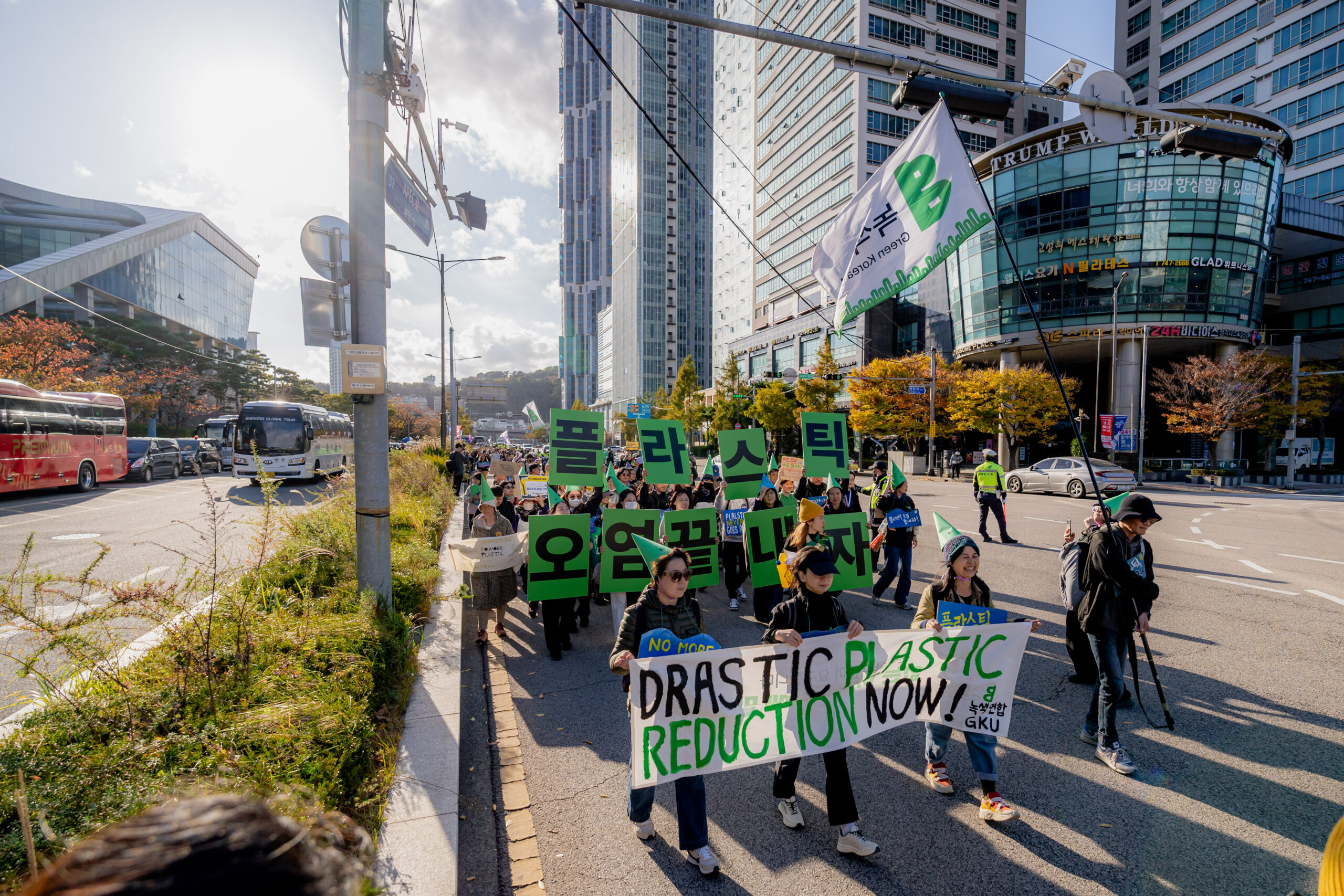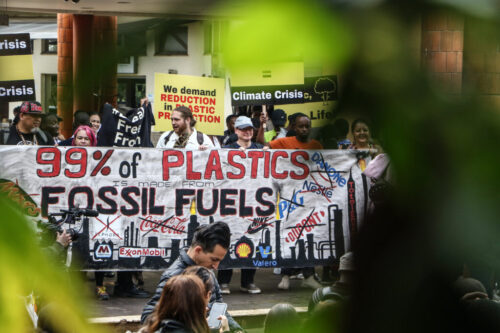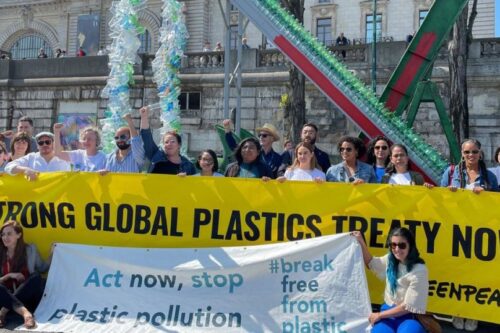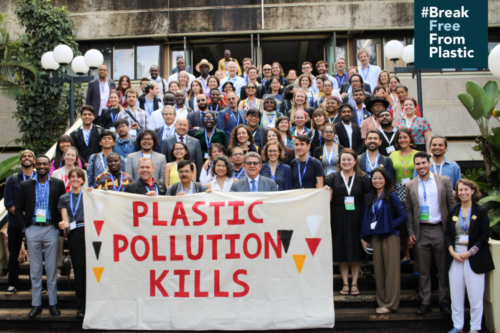The United Nations just announced that the next meeting to negotiate the Global Plastics Treaty will take place in Geneva on August 5-14. The PSF and our allies look forward to continuing to build the momentum for a meaningful agreement that includes strong protections for human health and the environment, including controls on toxic chemicals, commitments to reduce production, and ensuring a just transition for the workforce engaged in the plastics sector.
Civil society showed its power by ensuring the treaty’s scope covered the whole lifecycle, including production, and not just managing waste better. This is critical as we know that recycling and cleanups of trash can’t solve the crisis. We must turn off the tap of production by switching to systems that reuse products and packaging or eliminate them. And we must make this transition responsibly, putting workers and other rightsholders at the center.
We have achieved significant progress toward an ambitious treaty that would have been unthinkable if not for a united global movement, even if we still have a ways to go. Thanks to the global movement and its strength at the grassroots level, many countries are now insisting on strong measures to reduce production and deal with plastic pollution.
It takes substantial resources for civil society to engage in the treaty. They need to meet and work with governments, develop materials and publish studies to counter industry narratives, plan and prepare with other advocates, and travel to attend and run events at and around the meetings. With this powerful lever hanging in the balance and another critical summit on the books, now is the time for philanthropy to step up and support civil society’s efforts to protect our planet and our health.
The Plastics Treaty has the potential to be a bright light for climate action. Let’s seize this opportunity.
The Plastic Treaty Fundraising Collective, a cross-movement coalition of civil society organizations and networks championing an ambitious treaty, issued the following press statement about the upcoming treaty negotiations:
Statement from Break Free From Plastic, The Center for International Environmental Law (CIEL), Global Alliance for Incinerator Alternatives (GAIA), Health Care Without Harm, International Pollution Elimination Network (IPEN), and International Alliance of Waste Pickers (IAWP).
“The petrochemical industry’s plan to expand the production of plastics and petrochemicals is an existential threat to our health and our climate. Plastic is 99% oil and is responsible for more than 12% of all oil demand, a number set to double by 2050 as the fossil fuel industry plots for new areas of growth. If we want to protect our health and climate, we need to turn off the tap of endless plastic production.
Fortunately, there is still time to secure an ambitious Global Plastics Treaty that includes limits on plastic and petrochemical production and standards to address health and justice concerns. A strong Global Plastics Treaty would represent a rare and new opportunity to clean up our oceans, protect human health, head off the unsustainable growth of greenhouse gas emissions, and envision sustainable alternative livelihoods for the plastics workforce.
At the negotiations in Busan in December, most countries agreed on crucial aspects of a Treaty and aligned on the need for a strong treaty. This strong negotiating position is the result of an immense effort by civil society groups who have broadened the framework of the negotiations away from one focused primarily on issues like waste management. Instead, Treaty delegates now understand that plastics are poisoning people and the planet, and now is the time to end this existential threat. This progress occurred despite the hundreds of lobbyists from chemical and fossil fuel industries that far outnumbered any individual country’s delegation and who launched large-scale disinformation campaigns.
The upcoming meeting in Geneva on August 5-14 is a critical opportunity for civil society to hold political leaders accountable and build global momentum for a meaningful treaty. The global civil society movement stands ready to block the fossil fuel industry’s efforts to derail the treaty and to support an international agreement that protects people’s health and the planet.”
By Nicky Davies, Executive Director of the Plastic Solutions Fund, 3/3/2025




